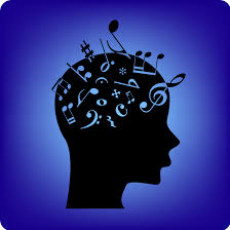
21st Century Britain; it is undeniable we are facing a social care crisis. In fact, some would say, ‘We are now beyond the crisis point,’ (Nahra Amred, Chair of the NCA, 2016). With an ageing population, increasing amounts being denied mental health treatment, and many more homeless or relying on Food Banks, it is evident that something must be done to tackle the problem. But with the NHS drastically underfunded and at breaking point, how we can put our faith into it to take care of those in need? Quite simply, we have a larger demand than ever for treatments, both for physical and mental illness, and no one seems to be supplying that demand.
As such, I would like to argue for the incorporation of music into therapeutic treatments. To date, a limited amount of small-scale studies have been conducted into whether music has an impact upon both psychological and physiological well-being. Evidence has generally provided positive results, but at this stage, there isn’t a large enough body of evidence to be convincing, certainly not to the extent that medical professionals should desire to incorporate it as a bona-fide treatment method, alongside chemotherapy (drug-based therapy) and talking therapies, such as Cognitive Behavioural Therapy.
However, I believe that with the increasing amount of knowledge being amassed in the ever-expanding field of neuroscience, we can readily observe the positive impact that music could have upon people’s well-being. Thus, within this paper, I would like to explore the evidence we have for music’s therapeutic properties, and to ascertain whether or not it would be viable to implement it as a form of treatment or therapy for a range of conditions, from Depression to Dementia, and perhaps even within a wider social context; to help with antisocial behaviour and the negative psychological effects of being homeless, for example.
Given the rising number of social issues that are being uncatered for, and the immediate availability of music, and at a significantly lower cost than current medical practices, I would argue that a much larger amount of research should be devoted to the use of music in a therapeutic context. Ultimately, music is one of the foundations of our Western Culture, and plays an important part of people’s everyday lives. The integral nature of this artform is what provides it with its amazing propensity for healing; it is highly personal, utterly individual. As such, it would be possible to create ‘tailored’ therapy for each ‘patient’, much in the same way as we are now beginning to delve into the creation of ‘individual cancer therapy.’ For example, a small amount of research has already suggested that playing music prominent within a person’s youth can have a positive effect on those suffering from Dementia.
I would like to begin by expanding upon the controversial notion that music is in fact a part of our evolution, and is thus so important to us because our very brains have evolved to understand it. Subsequently, I will attempt to demonstrate the neurological impact that music has, especially in a medical context, in respect to potentially treating those with neurodegenerative disorders. Then, I will continue to explore therapeutic uses for music within psychological settings and within a broader social context; i.e the implications this could have for homelessness, the ageing population and even the penal system.
Despite the criticisms that music therapy has received, I will attempt to provide evidence from more general scientific research, and then specified neuroscientific studies to illustrate that music could in fact be the key to beginning to solve of social care crisis.

0 Comment:
Be the first one to comment on this article.